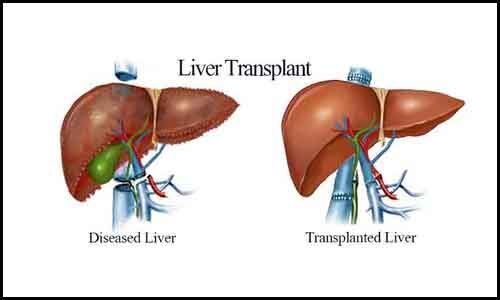- Home
- Medical news & Guidelines
- Anesthesiology
- Cardiology and CTVS
- Critical Care
- Dentistry
- Dermatology
- Diabetes and Endocrinology
- ENT
- Gastroenterology
- Medicine
- Nephrology
- Neurology
- Obstretics-Gynaecology
- Oncology
- Ophthalmology
- Orthopaedics
- Pediatrics-Neonatology
- Psychiatry
- Pulmonology
- Radiology
- Surgery
- Urology
- Laboratory Medicine
- Diet
- Nursing
- Paramedical
- Physiotherapy
- Health news
- Fact Check
- Bone Health Fact Check
- Brain Health Fact Check
- Cancer Related Fact Check
- Child Care Fact Check
- Dental and oral health fact check
- Diabetes and metabolic health fact check
- Diet and Nutrition Fact Check
- Eye and ENT Care Fact Check
- Fitness fact check
- Gut health fact check
- Heart health fact check
- Kidney health fact check
- Medical education fact check
- Men's health fact check
- Respiratory fact check
- Skin and hair care fact check
- Vaccine and Immunization fact check
- Women's health fact check
- AYUSH
- State News
- Andaman and Nicobar Islands
- Andhra Pradesh
- Arunachal Pradesh
- Assam
- Bihar
- Chandigarh
- Chattisgarh
- Dadra and Nagar Haveli
- Daman and Diu
- Delhi
- Goa
- Gujarat
- Haryana
- Himachal Pradesh
- Jammu & Kashmir
- Jharkhand
- Karnataka
- Kerala
- Ladakh
- Lakshadweep
- Madhya Pradesh
- Maharashtra
- Manipur
- Meghalaya
- Mizoram
- Nagaland
- Odisha
- Puducherry
- Punjab
- Rajasthan
- Sikkim
- Tamil Nadu
- Telangana
- Tripura
- Uttar Pradesh
- Uttrakhand
- West Bengal
- Medical Education
- Industry
Early liver transplant in alcohol-related hepatitis tied to more frequent high alcohol intake: Study

France: Early liver transplantation is an emerging treatment option for severe alcohol-related hepatitis. A recent prospective controlled study, published in The Lancet Gastroenterology & Hepatology has confirmed the important survival benefit associated with early liver transplantation for severe alcohol-related hepatitis. The study provides objective data on survival and alcohol relapse for tailoring the management of severe alcohol-related hepatitis patients.
"We cannot conclude non-inferiority with regards to the rate of alcohol relapse post-transplant between early liver transplantation and standard transplantation," Prof Alexandre Louvet and the team from France wrote in their study. "High alcohol intake was more persistent following an early liver transplant."
Dr. Louvet and colleagues conducted the study with an objective to assess the risk of alcohol relapse 2 years after early liver transplantation for alcohol-related hepatitis compared with liver transplantation for alcohol-related cirrhosis after at least 6 months of abstinence in a multicentre, non-randomized, non-inferiority, controlled study conducted in 19 French and Belgian hospitals.
All subjects were aged 18 years or older. Three groups of patients were recruited prospectively 1) early transplantation group -- patients with severe alcohol-related hepatitis who did not respond to medical treatment and were eligible for early liver transplantation according to a new selection scoring system based on social and addiction items that can be quantified in points; 2) standard transplantation group -- patients with alcohol-related cirrhosis listed for liver transplantation after at least 6 months of abstinence; and 3) not eligible for early transplantation group -- patients with severe alcohol-related hepatitis not responding to medical treatment not eligible for early liver transplantation according to the selection score, this group did not enter any further liver transplantation processes.
The researchers also defined a historical control group of patients with severe alcohol-related hepatitis unresponsive to medical therapy and non-transplanted. The non-inferiority of the 2-year rate of alcohol relapse after transplantation in the early transplantation group versus the standard transplantation group using the alcohol timeline follow-back (TLFB) method was the primary outcome.
Based on the study, the researchers found the following:
· Between Dec 5, 2012, and June 30, 2016, 149 patients with severe alcohol-related hepatitis were included: 102 in the early transplantation group and 47 in the not eligible for early transplantation group. 129 patients were included in the standard transplantation group. 68 patients in the early transplantation group and 93 patients in the standard transplantation group received a liver transplant.
· 34% of patients relapsed in the early transplantation group, and 25% of patients relapsed in the standard transplantation group; therefore, the non-inferiority of early transplantation versus standard transplantation was not demonstrated (absolute difference 9·1%).
· The 2-year rate of high alcohol intake was greater in the early transplantation group than the standard transplantation group (absolute difference 16·7%) The time spent drinking alcohol was not different between the two groups (standardized difference 0·24), but the time spent drinking a large quantity of alcohol was higher in the early transplantation group than the standard transplantation group (standardized difference 0·50).
· 2-year post-transplant survival was similar between the early transplantation group and the standard transplantation group (hazard ratio [HR] 0·87); 2-year overall survival was higher in the early transplantation group than the not eligible for early transplantation group and historical controls (HR 0·27 and 0·21).
"We cannot conclude non-inferiority in terms of rate of alcohol relapse post-transplant between early liver transplantation and standard transplantation," wrote the authors. "High alcohol intake is more frequent after early liver transplantation."
Reference:
The study titled, "Early liver transplantation for severe alcohol-related hepatitis not responding to medical treatment: a prospective controlled study," was published in The Lancet Gastroenterology & Hepatology.
KEYWORDS: Lancet, liver transplantation, alcohol-related cirrhosis, alcohol-related hepatitis, hepatitis, cirrhosis, Prof Alexandre Louvet, abstinence, survival, early transplantation, alcohol, alcohol relapse, alcohol intake
Dr Kamal Kant Kohli-MBBS, DTCD- a chest specialist with more than 30 years of practice and a flair for writing clinical articles, Dr Kamal Kant Kohli joined Medical Dialogues as a Chief Editor of Medical News. Besides writing articles, as an editor, he proofreads and verifies all the medical content published on Medical Dialogues including those coming from journals, studies,medical conferences,guidelines etc. Email: drkohli@medicaldialogues.in. Contact no. 011-43720751


